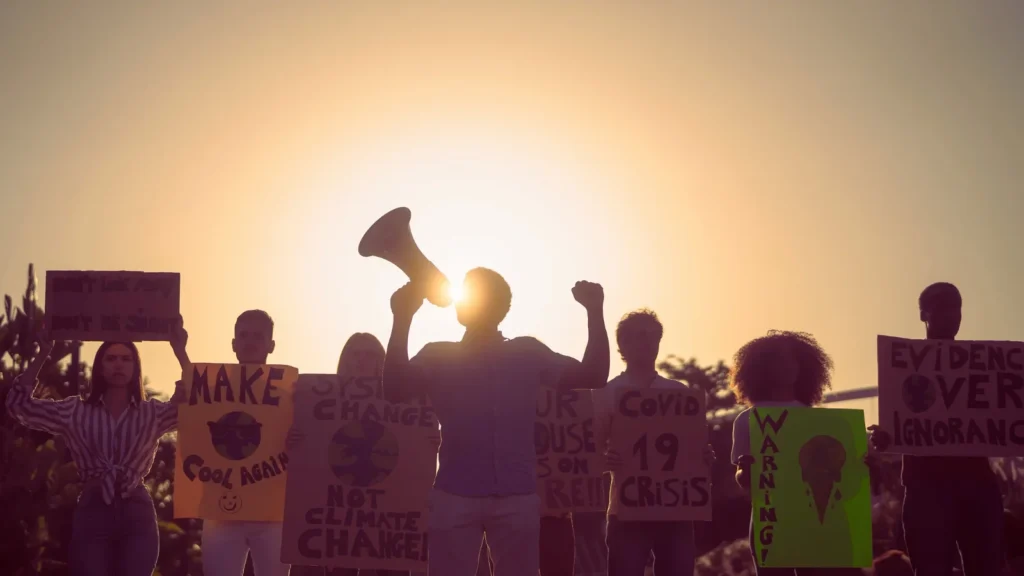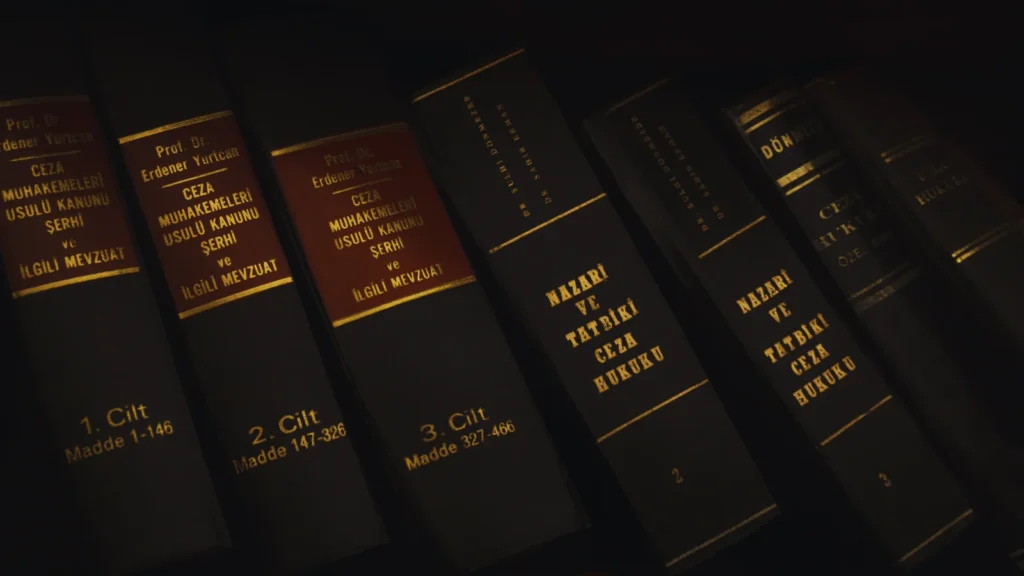“Injustice anywhere is a threat to justice everywhere.” – Martin Luther King Jr.
In 2024:
- Over 3.1 million were displaced and 18.6 million needed aid in Myanmar due to military-led atrocities.
- Many rapes and sexual assaults were allegedly done by Israeli forces in occupied territories.
- Electoral crackdown in Venezuela included hundreds of arbitrary detentions and widespread suppression.
- Sexual violence in Sudan affected thousands, with men and boys also among the victims of Rapid Support Forces (RSF is a Sudanese paramilitary group) abuses.
- 95% of Ukrainian POWs report torture, including beatings, electric shocks, and sexual violence.
- Dozens of activists in the UAE are detained, with expatriates deported for social media criticism of Israeli actions.
In such volatile times, we will be observing Human Rights Day in India on the 10th of December – the day when the United Nations General Assembly adopted the Universal Declaration of Human Rights (UDHR) in 1948.
Here, we will discuss why Human Rights Day is celebrated, what is the Human Rights Day message for this year, and the recent landmark human rights cases in India that throw light on our fight for justice and equality for everyone across our great nation.
What Is Human Rights Day?

“The progress of any society is measured by the progress made in the status of its weakest sections.” ~ Dr. B. R. Ambedkar
As stated above, Human Rights Day is on 10th December – the day United Nations adopted the Universal Declaration of Human Rights. This declaration has 30 articles outlining fundamental human rights. In essence, it states:
- All humans are born free and equal in dignity and rights.
- Every individual has the right to life and personal safety.
- Torture, cruel treatment, and slavery in all forms should be prohibited.
- All are entitled to equal protection without discrimination.
- Everyone has the right to a fair and public trial by an impartial tribunal.
- Everyone has a right to move freely, leave, and seek asylum from persecution.
- No one shall be arbitrarily deprived of their nationality.
- Everyone has the right to freedom of opinion, religion, and speech.
- Everyone should have access to work, fair pay, rest, and education.
- Everyone has the right to participate in cultural life and enjoy social security.
Human Rights Day is celebrated to remind us of these principles and advocate for them.
The Importance of Human Rights Day in India
Human Rights Day in India is all set to make a greater impact in recent times as the government is actively taking initiatives to modernise justice delivery systems and archaic laws of our country. Some of the recent developments include:
- In August 2019, Parliament passed the Repealing and Amending Bill, 2019, eliminating 58 obsolete central laws to streamline governance.
- National Mission for Justice Delivery and Legal Reforms was established in August 2011 to reduce delays and arrears in the judicial system and enhance accountability through structural changes.
- In December 2023, Parliament enacted the Bharatiya Nyaya Sanhita, Bharatiya Nagarik Suraksha Sanhita, and Bharatiya Sakshya Adhiniyam, replacing colonial-era laws to better align with contemporary needs.
- Launched for 2021-2026, DISHA (Designing Innovative Solutions for Holistic Access) aims to advance access to justice by consolidating various initiatives to provide citizen-centric legal services.
- The E-Courts Project of the Supreme Court, chaired by Justice D.Y. Chandrachud, the project has implemented virtual courts, e-filing systems, and the National Judicial Data Grid to digitise and streamline judicial processes.
- In October 2022, the government announced plans to repeal over 1,500 obsolete and archaic acts in the upcoming Parliament session to reduce the burden on the legal system.
In light of these developments, the Human Rights Day message in the Indian context can be:
“On this Human Rights Day, let’s celebrate India’s strides in modernising justice delivery and repealing archaic laws – reaffirming our commitment to equality, dignity, and access to justice for all.”
Landmark Human Rights Cases in India

Since 2018, India’s judiciary has delivered several landmark judgments that have significantly impacted human rights in the country. Notable cases include:
1. Decriminalisation of Homosexuality (2018): In Navtej Singh Johar v. Union of India, the Supreme Court struck down parts of Section 377 of the Indian Penal Code, decriminalising consensual same-sex relations among adults. The Court recognised that criminalising such conduct violated fundamental rights to equality, dignity, and privacy.
2. Right to Privacy and Aadhaar (2018): In K.S. Puttaswamy v. Union of India, the Supreme Court upheld the constitutionality of the Aadhaar scheme but imposed restrictions to protect individual privacy. The Court ruled that Aadhaar could be mandated for welfare schemes but not for services like bank accounts and mobile connections.
3. Entry of Women into Sabarimala Temple (2018): In Indian Young Lawyers Association v. State of Kerala, the Supreme Court lifted the ban on women of menstruating age entering the Sabarimala Temple, stating that the prohibition violated women’s rights to equality and religious freedom.
4. Decriminalisation of Adultery (2018): In Joseph Shine v. Union of India, the Supreme Court struck down Section 497 of the Indian Penal Code, which criminalised adultery. The Court held that the law was archaic and violated constitutional rights to equality and personal liberty.
5. Right to Die with Dignity (2018): In Common Cause v. Union of India, the Supreme Court recognised the right to die with dignity, allowing passive euthanasia and the execution of living wills under strict guidelines. This affirmed the right to a dignified death as part of the right to life under Article 21 of the Constitution.
6. Ban on “Conversion Therapy” (2021): In S. Sushma v. Commissioner of Police, the Madras High Court prohibited medical professionals from practising “conversion therapy” aimed at changing an individual’s sexual orientation. The Court directed measures to sensitise society and government branches to eliminate prejudices against the LGBTQIA+ community.
7. Recognition of Cohabitation Rights for Same-Sex Couples (2020-2021): In cases like Sultana Mirza v. State of Uttar Pradesh and Poonam Rani v. State of Uttar Pradesh, the Allahabad High Court affirmed the rights of same-sex couples to cohabit without harassment, emphasising constitutional protections against discrimination based on sexual orientation.
8. Non-Recognition of Same-Sex Marriage (2023): In Supriyo v. Union of India, the Supreme Court ruled that the legalisation of same-sex marriage is a matter for Parliament to decide, not the judiciary. The Court acknowledged the discrimination faced by LGBTQIA+ individuals and suggested the formation of a committee to explore providing certain legal rights and benefits to same-sex couples.
As responsible law students, we recommend you go through these landmark human rights cases in detail and analyse how we can preserve privacy, equality, and personal liberty for everyone, including those of marginalised communities.
Challenges and Opportunities in Upholding Human Rights

As Human Rights Day in India approaches, it’s vital to reflect on both the challenges and opportunities that define the human rights landscape in the country:
Some of the challenges India faces in upholding human rights include:
- Judicial Backlog: Over 4 crore pending cases in Indian courts lead to delayed justice, undermining human rights.
- Custodial Violence: Reports of torture and deaths in custody remain a significant concern.
- Freedom of Expression: Restrictions on press freedom and internet shutdowns invite allegations of suppression of the right to dissent.
- Discrimination: Caste-based violence, gender inequality, and communal tensions persist despite constitutional safeguards in India`.
- Labour Exploitation: Poor enforcement of labour laws often leads to exploitative conditions, especially for migrant and informal workers.
- Child Rights Violations: High rates of child labour, trafficking, and inadequate access to education and healthcare.
- Women’s Safety: Rising cases of gender-based violence highlight gaps in protection and justice mechanisms.
- Indigenous and Tribal Rights: Displacement due to industrial and development projects often leads to loss of livelihood and cultural identity.
- Privacy Concerns: Increasing surveillance and data breaches pose threats to the right to privacy.
- Climate Justice and Environment: Marginalised communities disproportionately bear the brunt of environmental degradation and climate change.
Addressing these challenges requires sustained efforts in legal reform, effective implementation of laws, and fostering a culture of human rights awareness.
As law students, we should tap into the spirit of why Human Rights Day is celebrated and be a part of the solution. Some of the things we can do are:
- Raising Awareness: Organise workshops, webinars, and campaigns to educate people on their rights.
- Legal Aid: Volunteer with legal aid clinics to provide free legal assistance to underprivileged communities.
- Research and Advocacy: Conduct research on pressing human rights issues and advocate for policy reforms.
- Pro Bono Work: Support NGOs and grassroots organisations in their fight for justice and equality.
- Internships: Gain practical experience by interning with human rights organisations or public interest litigators.
- Litigation Skills: Develop strong litigation skills to challenge human rights violations in courts.
- Whistleblowing: Expose systemic injustices through lawful and ethical means.
- Community Engagement: Work closely with vulnerable groups to understand their needs and build trust.
- Policy Contributions: Suggest policy improvements by participating in public consultations and discussions.
- Continuous Learning: Stay updated on national and international human rights laws and conventions.
By taking these steps, law students can play a vital role in upholding justice and protecting human rights.
A Message for Human Rights Day in India
We know when is International Human Rights Day celebrated – on the 10th of December. But let’s make everyday the Human Rights Day in India by championing human rights daily, ensuring a fairer society through action, awareness, and compassion for every individual.
In the end, let’s share this Human Rights Day message with everyone this year:
“Dignity for all, justice for the nation!
On this Human Rights Day, let us strive to hear every voice and let equality thrive!”
Read Also – Powerful Moot Court Tips To Ace It – For First-Time Participants
Building a Career Portfolio with Short Courses and Certifications





